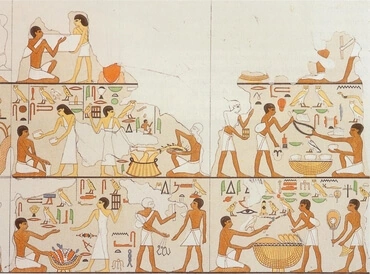58
곧 네 악이 드러나기 전에며 아람 딸들이 너를 능욕하기 전에며 너의 사방에 둘러 있는 블레셋 딸들이 너를 멸시하기 전에니라
24
너는 광야에 익숙한 들 암나귀가 그 성욕이 동하므로 헐떡거림 같았도다 그 성욕의 때에 누가 그것을 막으리요 그것을 찾는 자들이 수고치 아니하고 그것의 달에 만나리라

In the Bible, Egypt represents knowledge and the love of knowledge. In a good sense that means knowledge of truth from the Lord through the Bible, but in a natural sense it simply means earthly knowledge to be stored up and possessed. And even knowledge from the Bible is not always good: If we learn them with the goal of making them useful, then they are filled with angelic ideas. But they lack purpose when they are learned only for the sake of knowing things or for the reputation of being learned. So Egypt is a place you go to learn things, but to become heavenly you have to escape the sterile "knowing" and journey to the land of Canaan, where the knowledge is filled with the internal desire for good. It's interesting that when Egypt was ruled by Joseph, it was a haven for his father and brothers. This shows that when a person's internal mind rules in the land of learning, they can learn much that is useful. But eventually a pharaoh arose that didn't know Joseph, and the Children of Israel were enslaved. The pharaoh represents the external mind; when it is in charge the excitement and self-congratulation of knowing can reduce the internal mind to a type of slavery. The mind - like the Children of Israel - ends up making bricks, or man-made falsities from external appearances.